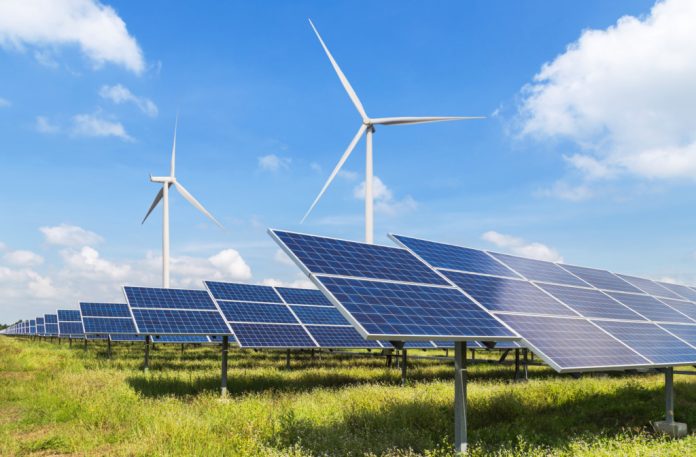Nearly 60% of Nigeria’s energy demand in 2050 can be met by renewable energy sources, saving 40% in natural gas and 65% in oil needs at the same time, according to the Renewable Energy Roadmap Nigeria report.
The report, released on January 13 by the International Renewable Energy Agency (IRENA) to coincide with the opening of Abu Dhabi Sustainability Week, reveals that Nigeria must invest in sustainable energy sources to meet the growing needs of all sectors of its economy and achieve universal access to modern energy services.
Produced in collaboration with the Nigerian Energy Commission, the report contrasts what would happen under current and planned policies (the Planned Energy Scenario) with a scenario of increased renewable energy consumption, called the Transformative Power Scenario (TES).
Investment in renewable energy will be more profitable than the conventional way. The TES has lower investment costs than the planned policies – $1.22 trillion versus $1.24 trillion respectively. This corresponds to $35 billion versus $36 billion a year.
IRENA Director General, Francesco La Camera, commented: “By utilizing its abundant untapped renewable energy, Nigeria is able to provide sustainable energy to all of its citizens in a cost-effective manner. Nigeria has a unique opportunity to develop a sustainable energy system based on renewable energy that supports socio-economic recovery and development while addressing climate challenges and achieving energy security.”
According to him, “Accelerating the energy transition will require far-sighted choices, discipline and wise investments, backed by international cooperation and strong national planning in Nigeria.”
Call to increase electrification
The report presents 18 key actions needed in the energy, buildings, transport, industry and agriculture sectors to achieve the objectives set out in the TES.
Existing financing mechanisms in the electricity sector should be improved and more regulatory options should be explored: the report says that despite the demonstrated benefits of renewables, the adoption of renewable energy technologies in Nigeria continues to grow at a rapid pace. slow compared to countries like Egypt. , Kenya and South Africa.
It also says that advancing the energy transition requires shifting and scaling up investments in the short term to avoid investments in locked-in fossil fuel infrastructure with long lifespans, such as natural gas pipelines.
The report highlights the need for Nigeria to invest heavily in electrification. Under the TES, electrification would play a significant role in achieving renewable energy’s share of 60%, and its share of final energy use would nearly double from 2015 levels by 2050.
Nigeria must improve existing efforts to promote clean cooking and access to modern forms of energy. The report says that traditional bioenergy plays an important role in Nigeria’s energy sector, covering almost half of final energy consumption in 2015. Achieving universal energy access by 2030 would have the potential to alter the composition of final demand power of Nigeria.
The report also notes that Nigeria must quickly start adopting biofuels and electric vehicles (EVs), in addition to boosting the role of public transport. Nigeria’s energy consumption is expected to increase due to population growth and improvements in people’s socio-economic lives.
Policy coordination required
In the report’s foreword, Adeleke Olorunimbe Mamora, Nigeria’s Minister of Science, Technology and Innovation, welcomes its findings:
“This assessment is timely given the Nigerian Government’s commitment to reduce its greenhouse gases by 20% unconditionally and 47% conditionally by 2030, as well as to achieve net zero emissions by 2060, as expressed at COP26. in Glasgow in 2021.
“This contribution to Nigeria’s efforts to increase the share of renewable energy
energy in your energy mix is highly appreciated and will be helpful in reviewing
national energy policy and strategic energy plans, as well as for academics,
consultants and investors interested in improving access to clean energy
sources for various applications in Nigeria.”
Commenting further on the launch of the report, he said: “The highly distributed institutional structure of the energy sector in Nigeria means that policy coordination will be essential to unlock integrated energy transition planning and ensure its success. A cross-cutting agency or body tasked with doing this would help build consensus and develop a coherent plan that would in turn enable the scaling up of renewables to meet needs across the Nigerian energy sector.”







